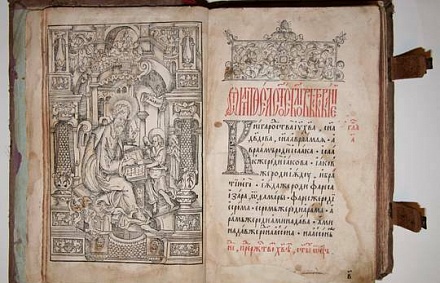
Theophylact Bulgarian. Commentary on the Gospel of Mark
Mark 3:20. Come to the house; and again the people come together, so that it was impossible for them to eat bread either.
Mark 3:21. And when His neighbors heard, they went to fetch Him, for they said that He had gone out of Himself.
Mark 3:22. And the scribes who came from Jerusalem said that He has Beelzebub in Himself and that He casts out demons by the power of a demonic prince.
“And having heard,” he says, “His neighbors,” perhaps people from the same native city with Him, or even brothers, went out to take Him; for they said that he had lost his temper, that is, that he had a demon. Since they heard that He casts out demons and heals diseases, they thought out of envy that He had a demon and “lost his temper,” which is why they wanted to take Him to bind him as a raging one. This is what His neighbors thought and wanted to do with Him. Similarly, the Jerusalem scribes said that He had a demon in Him. Since they could not reject the miracles performed before them, they revile them in another way, producing them from demons.
Mark 3:23. And calling them, he spoke to them in parables: How can Satan cast out Satan?
Mark 3:24. If the kingdom is divided in itself, the kingdom of that cannot stand;
Mark 3:25. and if a house is divided within itself, that house cannot stand;
Mark 3:26. and if Satan rebelled against himself and divided, cannot resist, but his end has come.
Mark 3:27. No one, having entered the house of a strong man, can plunder his things, unless he first binds the strong one, and then he will plunder his house.
Refutes hateful Jews with incontrovertible examples. How is it possible, - he says, - for a demon to cast out demons, when even in ordinary houses we see that while those who live in them are peaceful, the houses stand safely, and as soon as separation occurs in them, they fall? How is it possible, - he says, - that someone would plunder the dishes of the strong, if he does not tie it up in advance? These words mean the following: 'strong' is the devil; His 'things' are people who serve as his receptacle. Thus, if someone does not bind and overthrow the devil in advance, how can he plunder from him his vessels, that is, those who rage? Therefore, if I plunder his vessels, that is, I liberate people from demonic violence, then, consequently, I have bound and deposed demons in advance, and I find myself their enemy. So, how do you say that I have Beelzebub in Me, that is, that I cast out demons, being their friend and wizard?





